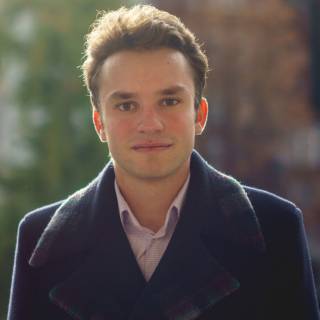Arkadiy is originally from Russia. After completing the UPCSE, he progressed to Engineering (Mechanical with Business Finance) MEng at UCL. Read more about his experience of the UCL foundation year.

Why did you choose to study at UCL?
I knew I wanted to come to the UK after doing a summer camp here. I wanted to develop myself, both in terms of my English skills but also independence from my parents. They gave me the opportunity to do it, so I decided to take it.
I chose UCL because the UPC is the best foundation in the UK. I knew I needed to work hard though so prepared a lot for the tests.
What course do you study now and what is it like?
Now I’m studying Mechanical Engineering with Business Finance.
The course is quite different to the Undergraduate Preparatory Certificate (UPC) as the classes are much bigger and there are no mid-term tests. There is also a diverse range of students in the lectures and seminars, so that is a big advantage.
What I love about my course is that we have a lot of team work projects. I’ve had the opportunity to be leading a team, and I’ve realised that I love that. It is one of the best aspects of the course. I’ve recently worked in a team of 5 to build a device from scratch which has to climb 3 metres high– I found it really fascinating!
How has the UPC foundation course helped you in your undergraduate degree?
The UPC gave me a great academic foundation - what I do in Maths right now is a revision of the foundation course, just with a little bit extra.
My language skills really improved too– particularly my speaking and written English; I can now express technical terms in a proper way, which you don’t really learn at school.
The UPC course was a really great experience; yes - there were hard times, but overall it was a great course which developed me, not only my technical knowledge but also my personality.
What was the most enjoyable part of your foundation course?
I really like how the subjects are taught; the teachers want you to understand the material – fully understand it, and not just so you can pass an exam. They’re really very passionate about their subject, so I was never bored at all.
I learned how to organise myself and produce the most efficient work. After I realised that, I felt a great deal of satisfaction.
What was the most challenging part of the course and how did you overcome it?
The beginning of the course when I had to start studying. During the first half term, I didn’t take it seriously, and when I got low results for the first half term it made me down and I realised I had to work hard.
That was the moment that I started studying a lot – every day. The hard work paid off in the end as I got a high score in the winter exams, so I was really happy about that.
Learning physics in another language was also a challenging experience, but it really helped me prepare. I couldn’t handle physics right now if I didn’t do the UPC.
What did you do when you were not studying for the UPC?
I was hanging out with my friends – we went to pubs and hung out in halls of residence. I met many great people – a lot became good friends and I spent a lot of time with them.
I also joined the circus society and learnt how to juggle!
What advice would you give to a prospective UPC student?
Do everything when they tell you to do it. Think about your research topic, or you might find yourself in a position where you’re really behind, and that can be quite stressful.
Make friends – as next year you’ll find they’ll be very close to you. Bond with UPC students, even if you don’t hang out much. I felt homesick at the end of the course after visiting a Russian restaurant, but I made a lot of Russian friends, which helped. But to be honest, you have so much to do on the course you don’t have time to feel homesick!
Make sure you also connect with people who have already done the course. It’s reassuring to hear about their experiences, especially when you first accept your offer, it can be daunting.
What is it like living and studying London?
There’s always something going on in London, lots of events and the opportunity to meet great people. The biggest difference between Moscow and London is that London is a diverse city, you meet people from all backgrounds and nationalities– in my case I’ve met people from Saudi, Turkey, Germany, UK, India, Romania and China.
This helps you learn how different people think; it breaks down the cultural wall between different people.
How is the UK education system different to your home country?
Most Russian students aren’t as serious about studying as my peers at UCL. The attitude towards studying is very different.
The teaching style is also different; you can build close relationships with your teachers here. With teachers in Russia there is a wall. The environment here is friendlier and it is easier to approach your teachers.
 Close
Close

